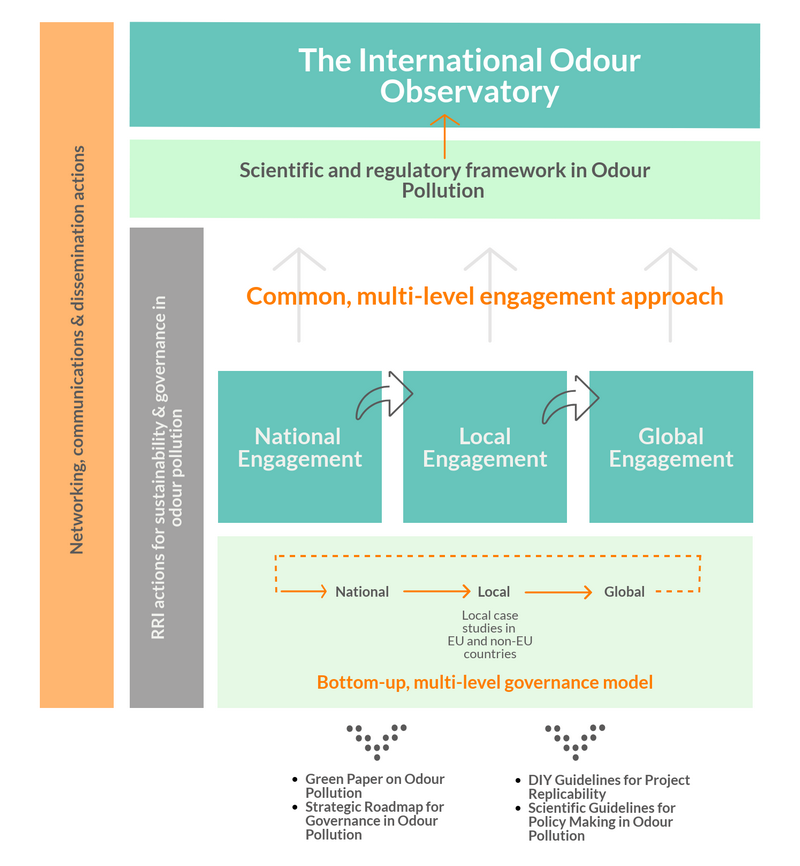The Distributed Network for Odour Sensing, Empowerment and Sustainability (D-NOSES) project received funding from the European’s Union Horizon 2020 Science with & for Society Call (SwafS) under grant agreement No. 789315.
D-NOSES will empower citizens to become a driving force for change through RRI, citizen science and co-creation tools to map and measure the problem, and co-design solutions with key quadruple helix stakeholders.
This 3 year-long project is supported by key experts in RRI, citizen science and co-creation (IBERCIVIS, IFC, MFC, ECSA), International Associations (MIO-ECSDE, ISWA, AMIGO), odour and sustainability experts, including universities and SMEs (POLIMI, DESEE, APEA, ENV, ECO), local administration (CMSJM and SOFIA SM) and public bodies (LIPOR). D-NOSES will reverse the way in which odour pollution is commonly tackled (i.e. a non-transparent, private process involving either the odour emitting industry or the local city council, with no citizen involvement and poor access to data and information) by applying a holistic approach to researching, building and suggesting an appropriate regulatory framework, which can act as a basis of the future odour pollution control efforts.
D-NOSES will empower citizens to become a driving force for change through RRI, citizen science and co-creation tools to map and measure the problem, and co-design solutions with key quadruple helix stakeholders. D-NOSES aims to kickstart a much-needed collaborative journey to tackle the problem of odours at a global scale by developing coordinated local case studies in 10 European and non-European countries. Several project actions will guarantee a high impact and project sustainability:
The International Odour Observatory, where all relevant data and information will be gathered, mapped and made available, together with the Green Paper and the Strategic Roadmap for Governance in Odour Pollution, which will set the basis for future regulations. Moreover, an engagement plan at the global, national and local level will be defined to engage stakeholders and communities, collect evidence and propose local solutions, facilitating community regulations. As a result, a bottom-up, multi-level governance model will be defined, while advocacy actions will be done at the policy level to introduce the topic in the policy agendas. Scientific guidelines for policy making and DIY guidelines for project replicability will also be produced.
The project actions will guarantee the implementation of Principle 10 of Rio Declaration by providing access to information, public engagement and access to justice in odour pollution, and are aligned with the SDGs of the UN 2030 Agenda 4.
The D-NOSES project is also aligned with the general framework of the Horizon 2020 Specific Programme Science with and for Society (SwafS) Work Programme, whose aim is “to build effective cooperation between science and society, to recruit new talent for science and to pair scientific excellence with social awareness and responsibility”.

D-NOSES Methodology. D-NOSES will use RRI tools to identify communities that are suffering from odour nuisance, prevent socioeconomic conflicts and empower citizens to collect, share and make sense of data that can help them to pursue environmental actions, while co-creating solutions, for increased sustainability and better governance.